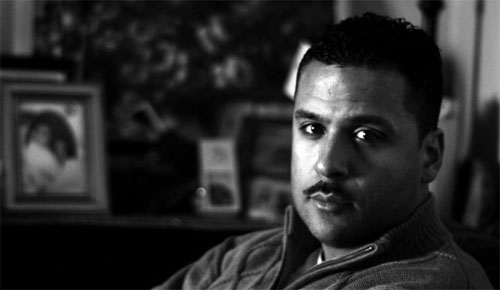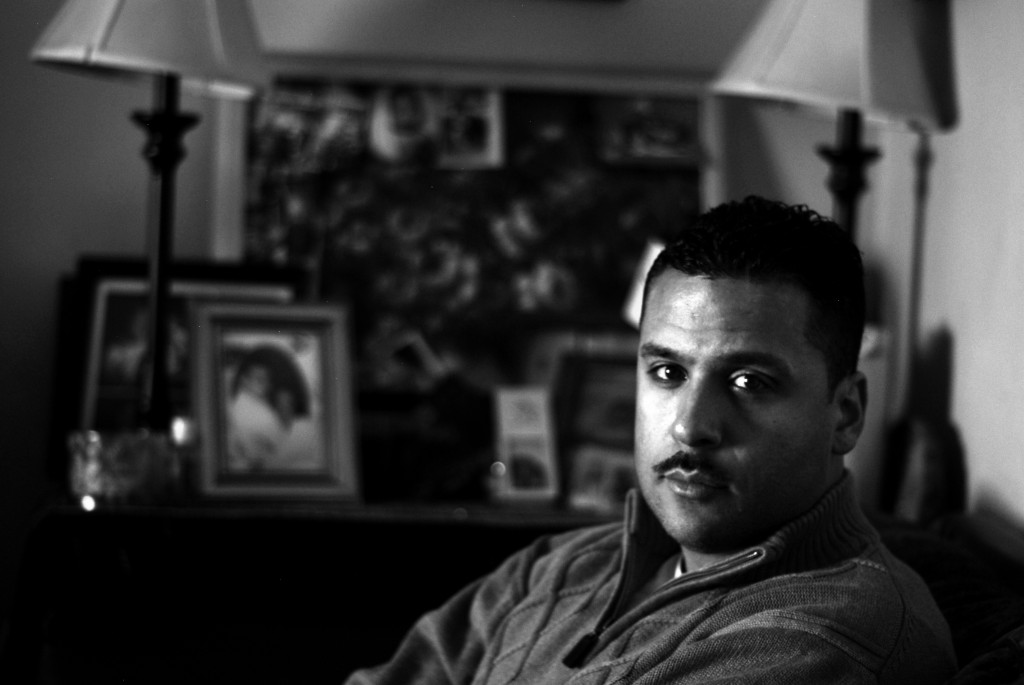
It was dark when Fernando Bermudez stepped off the Metro-North commuter train in Connecticut. He had spent a long day in New York visiting friends and family. As he walked through the parking lot of the Danbury train station, Bermudez looked around with growing horror. He didn’t recognize the street names. The storefronts and intersections were foreign to him.
He was lost and confused, with no idea where to go, sweating and growing more anxious each minute.
It was not because Bermudez had gotten off at the wrong stop. He was less than ten minutes from home. He had walked home from this very train station many times. But tonight he couldn’t remember the way.
Several months earlier, Bermudez had been released from prison after serving eighteen years for a murder he did not commit. Even now, after being exonerated and released, walking alone down the street terrified him. Prison had conditioned him to believe that his freedom did not belong to him.
Half an hour passed. Bermudez was panicking. But he didn’t want to stop a car on the street and ask for help; people might think something was suspicious and call the cops. He was afraid to ask a store clerk for directions; they would be skeptical about why he was walking aimlessly around downtown Danbury.
Finally, Bermudez called his wife, Crystal. He broke down. Here he was, a forty-year-old man, helpless in a place where he had lived for months. Crystal knew he couldn’t have been more than ten blocks away, but he wasn’t able to tell her where he was.
After an hour of being lost in his own city, Bermudez reached a recognizable street sign. His wife walked him home over the phone.
Before he went to prison, Bermudez was a different kind of man. Tall, with amber eyes and a striking smile, he had an easy confidence. Growing up in the Bronx, he was chased by girls, revered by peers, and doted on by his mother. When he was twenty-one, he enrolled in Bronx Community College to study medicine.
In August 1991, one month before he would have started class, detectives arrived at Bermudez’s door. They arrested him for the murder of a boy he’d never met, killed at a nightclub he’d never been to. Bermudez was convicted and sentenced to twenty-three years to life.
Doubts about his conviction remained. Five of the witnesses to the shooting of sixteen-year-old Raymond Blount later recanted their testimony, saying in sworn affidavits that they had been pressured by the police and prosecutors to identify Bermudez as the shooter. After ten failed attempts to overturn his conviction, Bermudez’s lawyers finally succeeded in 2009. In his decision, Justice John Cataldo wrote that there was “no credible evidence” connecting Bermudez to the murder. He was a free man.
The day he walked out of Sing Sing prison, Bermudez was ecstatic. “What was going through my body was an exorbitant amount of palpitations,” he told a New York Times reporter, “joy and happiness to a level that I’ve never known before in my life.”
But Bermudez and his wife Crystal did not anticipate just how hard his transition from prison to ordinary life would be. Like many families of exonerated prisoners, they figured the worst was over. “You had a lot of lawyers who were excited he’s out, you have family members that were excited that he’s out,” Crystal says. “Everyone thinks the problem is over.
“No, the problem’s not over. It just got started.”
Making Up for Lost Years
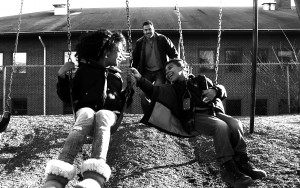
Since 1989, 289 people have been exonerated using DNA evidence. (Many more have had their convictions overturned through other means.) Their average length of incarceration is thirteen years. These years have been lost. Exonerees are released, but prison has left them incapacitated.
Even getting compensated for the state’s mistake in imprisoning them is far from certain. A report by the Innocence Project, a New York-based legal clinic that exonerates wrongfully convicted individuals through the use of DNA evidence, notes that 40 percent of DNA exonerees do not receive any compensation. Depending on their state, exonerees may have to sue, and the many legal hurdles to overcome, such as proving that intentional government misconduct landed them in prison, mean that only 28 percent of DNA exonerees have won lawsuits.
Even in the twenty-seven states that have enacted laws to offer financial assistance to exonerated prisoners, the process can drag on for years, and the amount of compensation varies wildly — from a lump sum of $20,000, regardless of the time spent in prison, in New Hampshire, to $80,000 per year of imprisonment in Texas. (Under New York’s law, a court decides the amount of compensation on an individual basis.) Only five states routinely give awards that match or exceed the federal standard of up to $50,000 per year incarcerated, and only ten states offer social services targeted at exonerees.
Yet the need is great. “Nobody’s situation is the same,” says Karen Wolff, a social worker at the Innocence Project. “Each exoneree is different. Each exoneree’s needs are different, each exoneree’s state is different, each exoneree’s family situation is different …. So it’s very difficult to figure out what a fix is.”
Nonprofits have tried to compensate for the lack of government help. The Life After Exoneration Program, a national organization, focuses on advocacy and outreach to help exonerees after their convictions have been overturned. Similar groups scattered across the country include Life After Innocence in Chicago, Resurrection After Exoneration in New Orleans, and the Wisconsin Exoneree Network. Exonerees can turn to caseworkers at organizations like these for help with finding jobs, housing, and health care, applying to schools, obtaining driver’s licenses and insurance, and setting up bank accounts.
But the few programs that do exist to help exonerated prisoners tend to be understaffed and underfunded. The Life After Exoneration Program, for instance, had to start turning away clients in 2008, as their funding, which came solely from individual contributions, was too low to support the large pool of exonerees seeking help. “Funding just became impossible,“ says Dr. Lola Vollen, founder of the program. While the program still offers emergency financial help and advises the groups treating exonerees, it no longer provides social services, she says.
Meanwhile, many exonerees are struggling to rebuild their lives. In 2005, the Life After Exoneration Program surveyed sixty exonerees around the country. About half found it difficult to afford basic living needs such as food and housing. Twenty-five percent were suffering from post-traumatic stress disorder, and two-thirds were not financially independent.
Exonerated prisoners cope with the trauma of not only their years in prison but also their abrupt release into a changed world. In telling their stories, I decided not to describe their time incarcerated — a continued source of pain for them, even years later — but instead focused on their reintegration. Like Bermudez, many of these men and women at first underestimate the difficulties they will face adjusting to their newfound freedom, and they are slow to seek help. Sometimes their symptoms appear in the weeks right after their release. Sometimes they show up after months or years.
A Bittersweet Homecoming
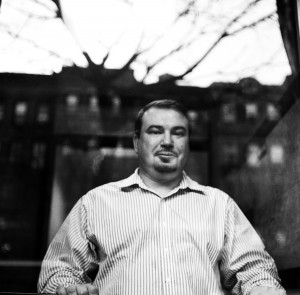
Jeffrey Deskovic remembers sitting in a courtroom in 1990, his mother’s arm around his back, his hands folded in prayer, as a jury read his verdict. The seventeen-year-old had been charged with the rape and murder of Angela Correa, a friend and classmate at their high school in New York’s Westchester County. Under police interrogation, he had falsely confessed to the crime.
The blood drained from his face as the jury pronounced him guilty. Deskovic was sentenced to fifteen years to life.
In 2006, Deskovic was exonerated, cleared by DNA evidence and the jailhouse confession of the real killer. On his last day in Sing Sing prison, Deskovic cleaned his four-by-four cell, packing up the belongings he had chosen to keep, giving away the rest to his fellow inmates when the guards looked away. He walked out of prison, his home for half his lifetime, with two bags holding everything he owned.
Sixteen years older, Deskovic had a long beard and mustache. The hair on his head had thinned.
Deskovic’s first night home was not what he had expected. As he talks about it, his eyes become glassy and he takes many long pauses. “I wish I could say that I came home to a huge party with all my relatives, and lots of food and lots of dancing,” he says. “But that would not be the truth.”
Home at last, Deskovic sat at a table with his mother, aunt, and cousin. This was their first real chance to talk, an opportunity to start renewing the relationships that had frayed over those years of incarceration. But no one had anything to say. Deskovic realized that he knew his fellow inmates better than he knew these people.
In the back of his mind, Deskovic heard a faint voice telling him, “You don’t belong here.” He stood up from the table and walked out to the backyard. “I had wanted to sit down and feel the air and not have someone tell me to go back in,” Deskovic recalls. He lay down on a bench and went to sleep. “And that was how I spent my first night.”
After several days, Deskovic had to leave his aunt’s home and find his own place. The initial elation of being out of prison had given way to the anxiety of being without a home, job, or car. Deskovic immediately applied for compensation from the state of New York, but there was a long wait. Meanwhile, the stress was getting to him. He felt he was going to have a breakdown. Desperate, he called the Life After Exoneration Program. He told them he needed therapy. The woman on the other end of the line informed him that they couldn’t help him. The program had stopped taking new cases.
Had Deskovic been an ex-convict, rather than an exoneree, he may have found it easier to get help, advocates say. For felons released on parole, state parole systems keep watch to ensure that their reentry into the outside world is smooth and efficient. Government grants go to nonprofits that assist ex-offenders, such as the Fortune Society, a New York-based social service and advocacy organization that helps former inmates find housing, job training, addiction counseling, and psychiatric services.
The availability of these programs for ex-convicts makes a difference in terms of reduced rates of recidivism and other positive outcomes, advocates for exonerated prisoners say, and they would like to see the same levels of government funding extended to their programs. Some reentry programs for former inmates cover exonerated inmates as well, but the wrongfully convicted need their own programs, Vollen argues. Her organization’s nationwide survey of exonerees found that exonerees did not want to be treated like ex-cons. “They wanted to be acknowledged for what their experience was,” Vollen says. “And they wanted services with people that were confident with dealing with the type of circumstances that they had.”
To pull himself out of his financial hole, Deskovic eventually turned to another program for exonerated prisoners: the Innocence Project’s Exoneration Fund, which assists exonerees in need of immediate income assistance upon release — which is most of them. The fund covers necessities such as food and utility bills, and provides a stipend to help pay for medical or psychological treatment. Currently, the fund is able to provide each exoneree with $10,000 to $15,000 during their first year after release, and a lifetime of counseling assistance. While he waited for the state of New York to compensate him for his wrongful conviction, Deskovic lived off this financial support.
A Stolen Identity
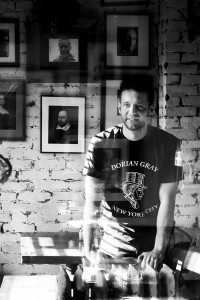
Yet private-sector efforts can only go so far in filling the gaping holes in the safety net for exonerated prisoners, advocates say. Karen Wolff of the Innocence Project argues that government could do more to meet the needs of people who were in jail for no fault of their own — for one thing, by offering them housing, health insurance, income assistance, and food stamps immediately upon release.
On an even more basic level, many exonerees leave prison without the kind of official paper trail they need to restart their lives in today’s society. “Some of that stuff can be done for them by the government right away, so they have it and they don’t have to wait months and months and months without, literally … an identity,” Wolff says. Yet because of bureaucratic carelessness, many exonerees end up unable to open a bank account right away, she adds, because they don’t have any identification other than their prison ID.
Some of them don’t even get that.
Kian Khatibi served nine years in prison for a near-fatal stabbing, framed by his brother, who later confessed to the crime. In 2008, Khatibi’s conviction was overturned and he was released from the Hudson Correctional Facility in upstate New York. Before they put him on the bus home, corrections officers stripped him of his prison photo ID. They told him that it was “state property.”
Back in his hometown in Westchester County, Khatibi visited the local welfare office. He explained his situation, but the staff there demanded some form of identification before they could help him. Khatibi went to the DMV to apply for a driver’s license, but he had no way of proving his identity there, either. All the other benefits and services he needed — Medicaid, bank accounts, credit cards — required a photo ID.
After his release, Khatibi spent weeks tracking down old files and painstakingly reconstructing his legal and financial identity. Meanwhile, he walked around with whatever cash he had in his pocket, storing it under his pillow at night. (One thing Khatibi didn’t have to worry about was housing: his sister let him sleep on her couch.)
The stress and frustration of the constant bureaucratic battles only aggravated Khatibi’s state of constant anxiety — the psychological scarring that had accumulated over almost a decade of being locked up. “Many people come out and say ‘I’m not angry,’ and this and that,” Khatibi says. “But there are certain days where the world is just overwhelming.”
Exonerated prisoners like him “pretty much need therapy,” he adds — “just like people that are coming back from war.”
Khatibi’s caseworker at the welfare office suggested a place to get counseling. It quickly became obvious that group counseling wouldn’t work in his case — how many other people know what it’s like to be wrongfully convicted? — and so Khatibi started seeing a therapist individually.
In therapy, Khatibi learned that he was struggling not only with post-traumatic stress disorder from his prison experience, but also with resentment toward relatives for not supporting him during his incarceration. “We agreed that he had this inner core of anger that he needed to extinguish … to be able to gain some balance in his life,” says Dr. Ross Fishman, his therapist.
Khatibi also needed to shake off his “prison mentality.” Upstate in Hudson, he had developed a hypersensitive survival instinct, which pushed him to react to any perceived danger with an immediate attack. In prison, if someone looked at you the wrong way, the expected response was to assert your dominance — “Let’s settle this” — or face the grim consequences of being perceived as weak. This mentality made perfect sense in the prison courtyard, but it was now making Khatibi impatient and agitated in harmless, everyday situations. One day, he was in a neighborhood deli when the man behind the counter looked at him in a way he didn’t like or trust. It was actually an innocent look, but it triggered an aggressive response from Khatibi. “Is there a problem?” he barked. The store clerk, alarmed, said nothing.
Incidents like this one pushed Khatibi to seek anger management counseling. With his therapist’s help, Khatibi has made substantial progress over the past four years. He graduated from New York University in 2010 with a bachelor’s degree in communications. He is currently working toward a law degree at Yeshiva University.
These days Khatibi seems optimistic and at peace with himself, his outward appearance betraying no sign of his incarceration. On a recent visit to his home, a single-bedroom apartment filled with books in the East Village, Khatibi is dressed smartly in jeans and a collared polo shirt. His dedication to exercise has kept him toned and fit. He walks with a calm, steady gait — another goal he has worked steadily to achieve. (When he first left prison, his sisters taught him how to lose the “prison strut”; he knew it wasn’t good for social situations or meeting nice women.) If he tells new acquaintances about his experiences in prison, he is often forced to back up his claims with newspaper articles.
Khatibi recognizes that he is one of the lucky ones. Unlike other exonerees, he is only in his early thirties and has been able to salvage his social life. He dates and socializes with friends old and new. He claims to have made at least one great friend in every one of his college classes.
“I’ve been really blessed,” Khatibi says. “But at the same time, not everybody is like me.” When he left prison, he was lucky enough to link up with effective organizations like the Innocence Project and Innovative Health Systems in Westchester. Other people lack the knowledge or wherewithal to seek out the right kind of help, he adds. “These are the people that are probably really getting lost when they get let out of jail after all this time.”
It makes Khatibi mad that the state hasn’t done more to help exonerees like him. After all, they bear some blame in all this, he says. “It’s not like a freak accident — it’s not like you just got hit by lightning.” The state erred and caused great harm, he points out; they should make up for it. “Why do they kick you out the back and close the door?”
Yet then there are the people like Jeffrey Deskovic, who have suffered so much damage in prison that psychological services and financial boosts don’t seem enough to help them. Khatibi has spoken with him many times, and he worries that Deskovic will continue having a hard time breaking out of his funk.
‘Not Really Participating’
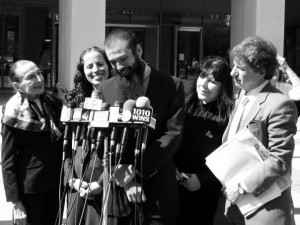
In a small diner underneath the Parkchester subway stop in the Bronx, Deskovic orders his breakfast in an authoritative tone. “I’ll have the corned beef hash and scrambled eggs, no toast, and bacon. I want the bacon on the side.” Since leaving prison, Deskovic has learned that he must be confident and straightforward to avoid confusion. But even simple interactions can exasperate him. He reminds the waiter, pointedly, of his order. “You heard me say no toast? And I want the bacon on a side plate.” At the end of the meal, he appears frustrated with the service. “This waiter is not going to get a good tip, I’ll tell ya that much,” he grouses. “Service was horrible.”
In some ways, things are looking up for the ex-Sing Sing inmate. After five years of waiting, Westchester County finally agreed to settle his federal civil-rights lawsuit, paying him $6.5 million in compensation for his wrongful conviction. Deskovic is currently working toward his master’s degree at the John Jay College of Criminal Justice. He has launched his own organization to advocate on behalf of exonerated prisoners, the Jeffrey Deskovic Foundation for Justice.
But today Deskovic finds it hard to put up a façade of positive thinking. He is agitated and curt, fixated on his tight schedule of meetings and appointments in the city. As Deskovic talks over breakfast, it becomes clear that more is bothering him than his workload. He is thirty-eight years old, and his life isn’t working out the way he hoped. He is exhausted with the unhelpful therapy sessions, tired of constantly going home to his apartment, feeling all the more discouraged and lonely.
“Sometimes I get really depressed and frustrated just thinking, and I ask myself, you know, ‘Where’s my life going?’” He pauses for several long moments. “Sure, I have my advocacy work and my nonprofit, but my personal life’s a mess. That’s what is really debilitating.”
During the years that he was locked in his cell, most boys and girls his age were falling in love for the first time and forming lasting relationships, he points out. Had he not been imprisoned, “my life would have developed in the normal cycle of life,” Deskovic says. “I would have friends from college, and friends of friends.”
He asks many people, sometimes strangers, what they would suggest he do. He has tried bars, chess clubs, ping-pong clubs, gyms, sports teams, and dating websites. He feels he has exhausted every option. “I still want to throw a ball around, go to a water park,” he says. But no one wants to go with him. “I am trying to put a social life together. How do you do that from scratch?”
On some days the anxiety and depression weigh down on him so much that he can’t bear sitting in his living room alone. He retreats to his parked car, where he will brood for three or four hours, just wondering if he should turn on the ignition. If he does, he is not sure where he would go. There is no place for him to go.
“There’s going to come a time that I’m significantly older and I’m going to realize that there’s not really that much more time to live,” Deskovic says. “And I’m going to regret the amount of time since I’ve been home … that I wasn’t really participating.”
Overwhelmed by the World
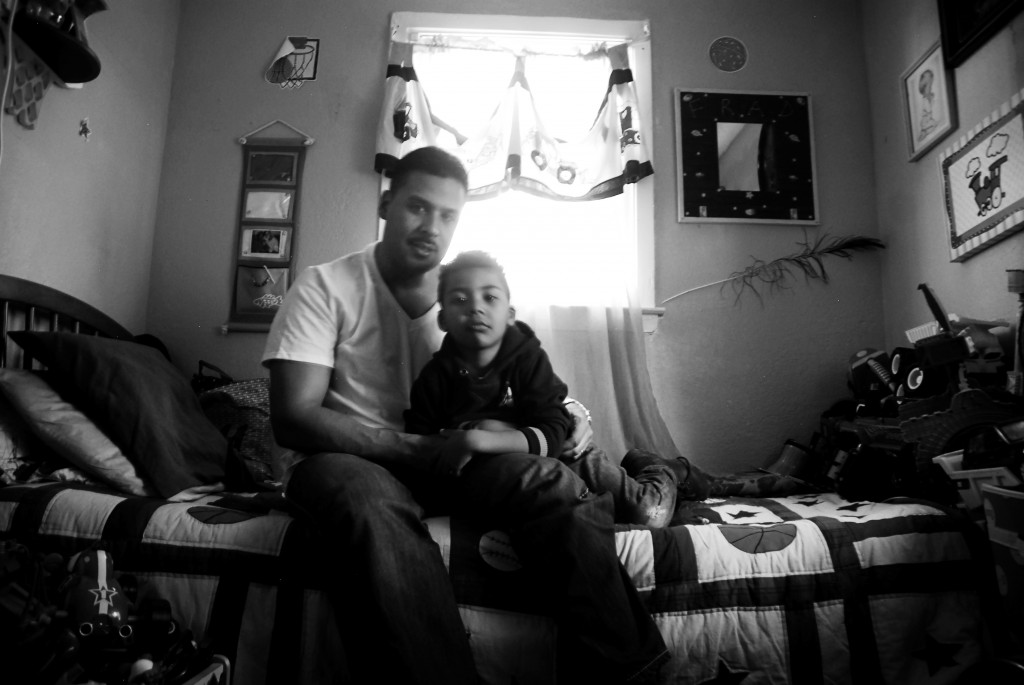
The transition to civilian life has been hard on Fernando Bermudez, too, but at least he has his family. In the weeks after his murder conviction was overturned, everything was exciting for him. He could finally lie in bed next to his wife, feel the warmth of his young son’s body cuddling on the couch, eat a home-cooked meal.
Eventually, Bermudez and his family moved from New York to Danbury, Connecticut. It was a smaller, more tranquil community, an hour-and-a-half drive from the city. Here, Bermudez would be able to focus on his advocacy work and finish his college education.
Three years after his release, Bermudez does not have a regular job. He completed his bachelor’s degree in behavioral science last December at Western Connecticut State University, and is considering returning for his master’s degree. In the meantime, Bermudez continues to do public speaking about his wrongful conviction at colleges and law schools around the country. He works hard at marketing himself and occasionally brings home checks from his speaking engagements, but it is not a career. He has filed a lawsuit seeking compensation for his wrongful conviction, but is waiting, too, on that outcome.
Bermudez contributes to the family in other ways, such as driving his ten-year-old daughter Carissa and six-year-old son Fernando to school in the morning, washing the car, and shoveling the front walk when it snows. But it is rare that Bermudez can manage all those things in one day. The stress and anxiety accumulate throughout the day and often leave him exhausted. He is not used to the speed of technology. The intricacies of simple household appliances fluster him. He doesn’t understand his children’s infatuation with texting. Driving often makes him very tense, and so Crystal drives for him. She has noticed that even small things, like composing an email, can sometimes push her husband to need a nap. Crystal recalls a family outing to the mall shortly after his release. “We went to Macy’s and he became overwhelmed by trying to find a shirt,” she says. “He didn’t know how to use money.”
His years in prison clearly traumatized Bermudez, who to this day cannot let go of the regimented prison routine. On some days, he leaps out of bed at 5 a.m., ready for the morning count. Wide awake, he paces the room endlessly, just as he used to do in his cell. The only way he can fall sleep again is by placing a T-shirt over his face, just as he used to do in his prison bunk. If Crystal is able to coax him back into bed, she rubs his back and reminds him he is home now.
Because he is suffering from post-traumatic stress disorder, Bermudez has difficulty controlling his emotions. Crystal says that at times the confusion and frustration build up to the point that her husband, a grown man, will cry in front of her.
It took Bermudez several months to starting seeing a therapist. “I needed psychological help at first, and nothing was forthcoming,” he says. He didn’t have health insurance and was piggybacking on his wife’s plan to receive temporary counseling. It wasn’t until he became a student that Bermudez qualified for an individual health plan. He still suffers from the same symptoms of PTSD, and occasionally sees a therapist. He says he finds the therapy helpful, and now that he has finished school, he hopes to attend sessions more regularly.
There are days that Bermudez feels great. But on other days, the panic attacks return. Crystal knows when her husband is feeling overwhelmed. He goes to his favorite spot in the apartment, his son’s bedroom, to lie down. “Fernando likes being in that room because it’s small,” Crystal says.
“It’s like he has a prison room with a window — like he’s fortunate enough to have a window.” The confined space soothes him, his wife notes. “He’ll lie here for hours.”
See Dana Ullman’s companion piece, Life after Innocence, for photos of the three men profiled in this article.
Francesca Crozier-Fitzgerald is a freelance journalist and recent graduate of Columbia University’s Graduate School of Journalism. Currently, she is living in her hometown of Philadelphia.
- Follow us on Twitter: @inthefray
- Comment on stories or like us on Facebook
- Subscribe to our free email newsletter
- Send us your writing, photography, or artwork
- Republish our Creative Commons-licensed content

